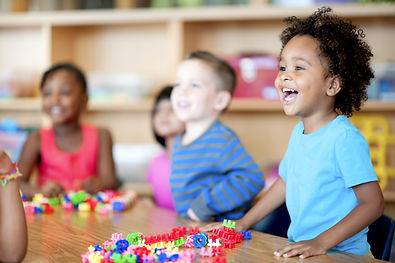
Consultations in Everyday Environment
-
Consultations in the Home
-
Preschool / school Visits
-
Education to teacher and staff about the child's speech and language needs in the classroom
-
Coaching parents on how to achieve their speech and language goals in their everyday routines e.g. highlighting 'on' and 'off' while getting dressed in the morning, food 'on' and 'off' your plate etc.

Individualised Goals
-
Standardised assessments are used to determine your child's speech and language goals
-
Standard assessments are combined with informal assessment through play and interaction with care giver. This gives us an accurate picture of the child's current speech and language levels.
-
Goals are continually reviewed. New goals are given once previous ones are achieved
-
Autistic kids: Play based assessment to ascertain level of play and social interaction e.g. joint attention, engagement and interaction
Individualised goals may focus on:
-
Speech - targets the pronunciation of sounds e.g. child says 'wing' for 'ring'
-
Receptive Language - the understanding of language and vocabulary (spoken and written) e.g. understands 'Where is the green car?' when asked or if reading the question
-
Expressive language - the ability to express thoughts and feelings through talking (and writing) e.g. Able to say 'I want the green car' or write this sentence
-
Pragmatics - The ability to use language in a social context. This includes skills such as attention, turn taking, listening, initiating and ending conversation.
-
Social interaction - being able to share and engage with an autistic child for a social purpose e.g. an autistic child wanting to show you the tower they built
Evidence Based Therapy
-
Promote early diagnosis and intervention.
-
Evidence supports that early intervention demonstrates improved outcomes for children and families by taking advantage of neural plasticity in young children's development.
-
Follow developmental models of speech, language and communication.
-
AVT is an evidence-based therapy (LOCHI STUDY) that helps hearing impared children to develop speech and language skill using their hearing technology.
-
Hanen Centre: It takes Two to talk and Early Start Denver Model are both evidence based programs that help autistic children learn how to develop social interaction skills, which is the foundation for language learning
Empowering Parents
-
Family centered practice - parents let us know what their hopes and dreams for their child are. Speech and language goals are driven by the parents.
-
Refer to other health care professionals if needed to achieve their holistic goals. E.g., Occupational therapist, Physiotherapist
-
Guiding and coaching parents on how to achieve speech and language goals in everyday environments
-
Building the parent-child-clinician professional relationship .
Works with a Variety of Children
-
Deaf or children who are hard of hearing
-
Training: Listening and Spoken Language Specialist with Auditory Verbal Therapy Certification
-
-
Autism spectrum disorder
-
Training: Early Start Denver Model training, It takes 2 to Talk - Hanen Workshop
-
-
ADHD
-
Speech disorders and delays
-
Language disorders and delays
Play Based Therapy
-
Children learn best through play.
-
Use fun and interactive activities to achieve speech and language goals
-
Focus on parent and child bond
-
Guide and coach parents on how to make goals fun and engaging at home